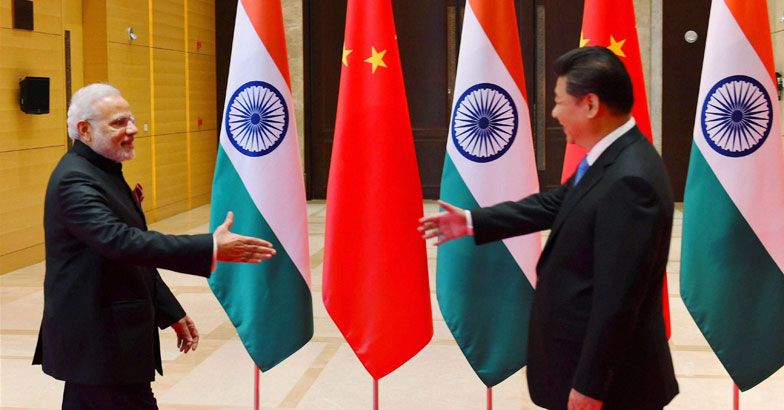
NEW DELHI: In a diplomatic victory, India and China have agreed to “disengage” from the stand-off in Doklam on Bhutanese territory.
After almost 10 weeks of sustained negotiations between top-level Indian and Chinese officials, the MEA on Monday said “expeditious disengagement of border personnel at the face-off site at Doklam has been agreed to and is on-going.”
By the end of the day, as Indian troops withdrew from their post at Doka La, Chinese troops and their road-building equipment too were removed from the face-off site. The standoff has been on since June 16 when Indian troops physically stopped the PLA from building a road on Doklam plateau. In a second statement at the end of the day, MEA confirmed that both sides had moved out “under verification.”
The negotiations were conducted at various levels — first, during the visit by NSA Ajit Doval to China in July, where he held discussions with his counterpart Yang Jiechi. Next, foreign secretary S Jaishankar led the diplomatic talks with the Chinese side, helped by India’s ambassador to China Vijay Gokhale, who worked ceaselessly with the
Chinese government over the last couple of months to achieve an outcome that would be acceptable to both sides.
The MEA spokesperson said that in numerous meetings between the Indian and Chinese officials in the past couple of months, India has been successful in conveying its “concerns and interests.” “In recent weeks, India and China have maintained diplomatic communication in respect of the incident at Doklam. During these communications, we were able to express our views and convey our concerns and interests.”
MEA Press Statement on Doklam Disengagement Understanding pic.twitter.com/fVo4N0eaf8
— Anurag Srivastava (@MEAIndia) August 28, 2017
The disengagement comes ahead of Prime Minister Narendra Modi’s visit to China for the BRICS summit. It also comes before a crucial 19th party congress in China where Xi Jinping expects to be “cleared” for another five years and he will choose the core group of leaders who will rule China for the next five years.
The Indians went in with some demands:
- That China should not change the ground realities unilaterally.
- That China should respect the the 2012 understanding on tri-junctions.
This was detailed by external affairs minister Sushma Swaraj in parliament where she said, “Point 13 of the common understanding states that “The tri-junction boundary points between India, China and third countries will be finalised in consultation with the concerned countries.” Since 2012, we have not held any discussion on the tri-junction with Bhutan. The Chinese action in the Doklam area is therefore of concern.”
While China was breathing fire in the public domain, during the negotiations, sources said, India held the line that bilateral relations would be affected if China did not ensure “peace and tranquillity” on the border. This could happen only if there was a reversal to the status quo. The two sides only came to an understanding after continued conversations and a realisation in China that India would not move from the ground until they withdrew.
In addition, India also provided China with a face-saving exit. China’s initial response on Monday morning was to confine itself to saying that only Indian troops had withdrawn from the site, and that they would continue to “maintain sovereignty”on the Doklam plateau. India did not contest this publicly until in the afternoon, when a second Indian statement clarified that both sides had withdrawn “under verification.”
Official Spokesperson's response to questions on the Doklam disengagement understanding pic.twitter.com/we1vFIIBfh
— Anurag Srivastava (@MEAIndia) August 28, 2017
Top-level sources also clarified that India had not asked either the US or Russia to intervene on its behalf. While Russia maintained a studied silence, the US made a general statement calling for peaceful negotiations. It was only Japan which issued a detailed statement on the Doklam issue, largely taking the Indian point of view.
What is not yet clear is whether this disengagement would lead to boundary negotiations between India and China in the coming months. There have been no boundary negotiations for some years.
